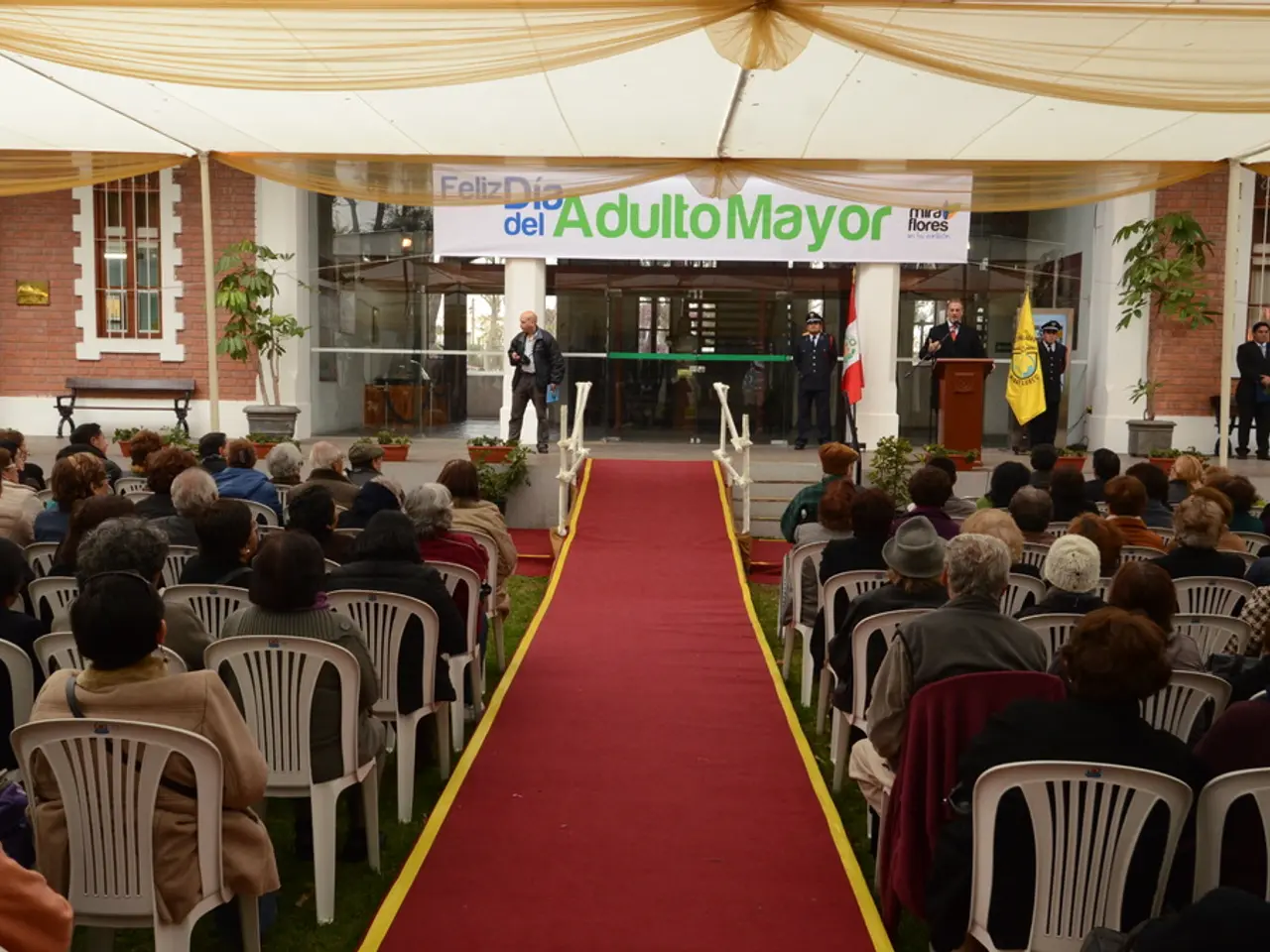Additional evidence raised to challenge her qualifications
Frauke Brosius-Gersdorf, a nominee for the Federal Constitutional Court, is facing a heated debate over her suitability for the role, with concerns about her impartiality and potential bias raised by various quarters.
The German government is pushing for Brosius-Gersdorf's confirmation, arguing that her strong opinions on issues like abortion, potential vaccine mandates, and a possible ban on the Alternative for Germany (AfD) party would bring diversity to the court. However, this liberal policy profile has sparked controversy, particularly on the issue of abortion.
Brosius-Gersdorf has advocated for liberalizing Germany's restrictive abortion laws, which in some cases criminalize abortions. Her suggestion that human dignity might only apply at birth has been met with intense criticism from conservative and religious groups, with Catholic bishops denouncing her nomination as a "radical attack" on constitutional foundations.
In addition, Brosius-Gersdorf has supported mandatory vaccination policies, a stance that, while not central to the current controversy, has contributed to her overall liberal policy profile.
Another point of contention is Brosius-Gersdorf's views on media reporting. There have been media reports accusing her of plagiarism in her doctoral dissertation from 1997, though she has denied these allegations. Critics have used these claims to further oppose her nomination. Moreover, her comments on freedom of speech and media reporting have raised doubts about her impartiality.
Brosius-Gersdorf has stated that critical media do not have to report neutrally, their job is to scrutinize critically. However, this stance has been met with criticism, with some arguing that it could compromise her ability to maintain impartiality as a judge.
The media has highlighted her views on abortion and other issues, which some argue are presented in a biased manner, influencing public opinion against her. The German media watchdog, Netzpolitik, has expressed concerns about Brosius-Gersdorf's nomination, arguing that her views on media reporting could compromise her impartiality as a judge.
Brosius-Gersdorf's stance on potentially banning the AfD party has also been met with opposition. She has conditionally supported a ban if legal conditions are met, which has implications for freedom of speech and political expression in Germany, further polarizing public opinion.
The opposition parties in the German parliament are planning to challenge Brosius-Gersdorf's nomination, citing her lack of impartiality as a concern. WELT's chief commentator Andreas Rosenfelder has also expressed concerns about her nomination.
As the Federal Constitutional Court prepares to make a decision on Brosius-Gersdorf's nomination, the controversy highlights deep divisions in German politics and society, particularly regarding issues like abortion, freedom of speech, and the role of the court in shaping national policy. The nomination process has also exposed tensions within the Bundestag, as parties struggle to find common ground on judicial appointments.
Other quarters continue to question Brosius-Gersdorf's nomination for the Federal Constitutional Court, given her controversial stance on policy-and-legislation matters such as abortion and freedom of speech. Her views on media reporting, including her belief that critical media do not necessarily have to report neutrally, have raised concerns about her potential bias as a judge.
The ongoing controversy surrounding Brosius-Gersdorf's nomination underscores the divisive nature of politics in Germany, with particular debates centering on issues like abortion, mandatory vaccination policies, and the potential ban of the Alternative for Germany (AfD) party.








